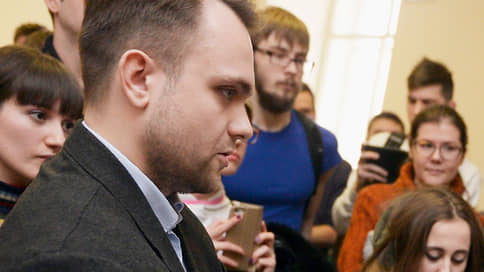From nomination to movement – Newspaper Kommersant No. 172 (7373) of 09/19/2022
[ad_1]

The extremely modest results of the opposition in the recent municipal elections in Moscow were the impetus for the creation of new local communities. Former deputies and candidates are discussing with residents of a number of districts the creation of public structures to control municipal councils, in which the opposition has lost its majority. Public receptions of candidates from Yabloko and the association created on the basis of the pre-election platform Nomination intend to work in a similar way. The expert believes that in the conditions of high ratings of the Moscow authorities, there is no request for protest movements in the capital.
Oppositionists began to think about maintaining their representation in the regions immediately after summing up the results of the elections, in which more than 90% of the mandates were received by United Russia and the My District association loyal to the authorities. The first to announce plans to create a public association that would preserve the district’s activists were the coordinators of the “Nomination” election platform – former candidate for the State Duma from the Communist Party Mikhail Lobanov (did not run this year) and ex-deputy of the Zyuzino district Alexander Zamyatin (removed from the elections on article of the Administrative Code on the demonstration of the symbols of an extremist organization for the video of the opposition leader Alexei Navalny’s team).
Mr. Zamyatin told Kommersant that after the elections, “candidates in the districts still have local communities,” which “could become the basis for the democratization of the city.” According to the opposition, we are talking about “hundreds of local leaders and tens of thousands of their supporters.” In order to “preserve and develop” this asset, the creators of the platform want to re-register it as a “democratic movement with a political strategy.” According to Alexander Zamyatin, in October it is planned to “gather district leaders and announce more specific plans and forms of the movement.”
The opposition deputies who lost the elections also do not want to abandon the assets of their supporters. Public councils, which could control the work of new deputies, can help with this, says the former head of the Gagarinsky district, Elena Rusakova (removed from the elections for “involvement in the activities of an extremist organization” as a participant in a rally in support of Mr. Navalny). “Such a council was created the year before last, when I was the only oppositionist on the council. If an important issue was considered, I notified the activists, and people came in large numbers, demanding that United Russia take the decision that they want, and not dictated from above. In a number of cases, they succeeded,” Ms. Rusakova explained. Last week, the council of the Gagarinsky district met for the last time, after which the residents expressed their desire to continue discussing regional problems and “planning some kind of action,” Elena Rusakova said. In what format the asset will be coordinated, she does not know, but she is sure that the area will not be left without “close control”. The idea of creating community councils is being discussed in at least six districts. According to Ms. Rusakova, in some cases several movements, initiative groups or public organizations are created at once.
Yabloko also decided to create a “public movement for the rights of voters” who voted for its candidates (according to the party’s calculations, they were supported by 15,000 Muscovites who voted). As the former head of the Yakimanka district, “Yabloko” Andrey Morev (removed from the elections under an article on the demonstration of extremist symbols for sticking a “Smart Voting” sticker on his car by unknown persons), told Kommersant, the project will work in the format of public receptions, the purpose of which will be “protection interests of voters” and, in particular, “assistance in resolving current issues that were previously resolved by opposition deputies.” In addition to Yakimanka, where the former council consisted almost entirely of Yabloko members, such offices should open in eight more districts within a month.
The effectiveness of the work of associations will largely depend on the residents themselves, the oppositionists interviewed by Kommersant are sure. They themselves are ready to support the activity, but cannot guarantee the “stability” of the structures. Political scientist Konstantin Kalachev adds that new movements can become strong and competitive if they are led by “recognizable and trusted leaders” who can offer “relevant solutions”, provided there is a public demand for such activity. “The fate of all protest undertakings depends on the actions of the authorities to no lesser extent than on the activity of the opposition itself,” the expert believes. “The Moscow government has increased its ratings in recent years, the assessments of its work have grown. For the opposition, on the contrary, the corridor of opportunities narrowed. This does not mean that at some point the update request cannot prevail. But when a demand arises, a new opposition may also arise.”
[ad_2]
Source link








